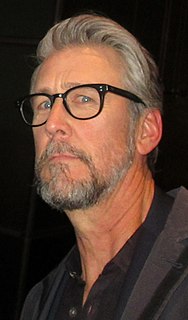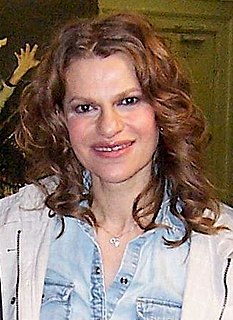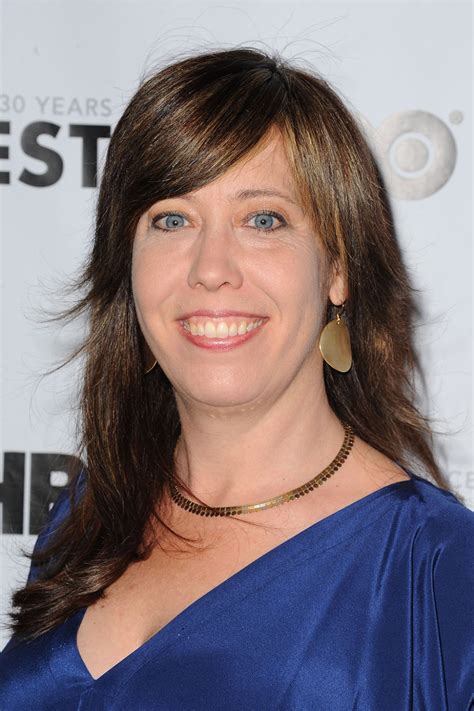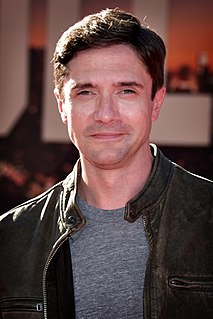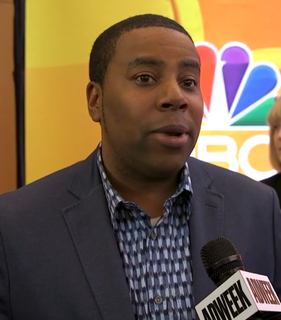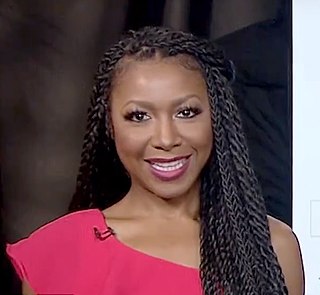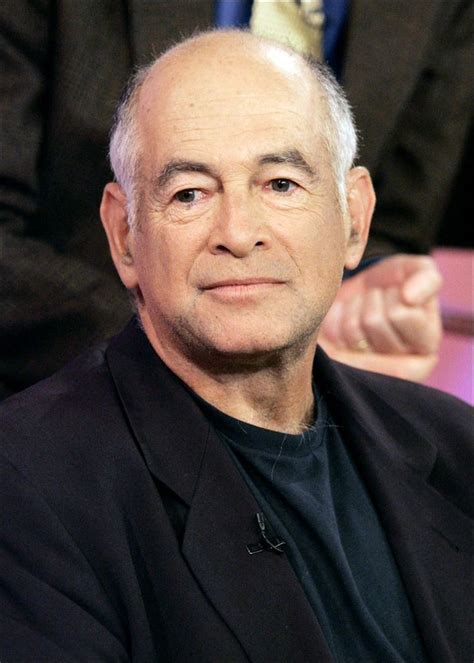A Quote by Alan Ruck
I really enjoyed multicamera comedy. You film in front of a live audience, and it's kind of the best of both worlds. It's like doing a one-act play every week, but if you screw your lines up, you get to do it over.
Related Quotes
Like, your body has to get used to being in front of people. Like - and you have to be like - you have to be kind of a ham, you know? Like, the thing about writers is they're generally self - comedy writers - self-loathing, sort of play small. And as a, like, performer, you have to think like a comedy writer but act like a performer.
I guess I prefer to play live, but I don't want to have only live CDs. I like playing live because there are alot of things that can happen. I can interact with the audience and say some things to get me in trouble. On the other hand, the studio is nice because you can really take your time and make something that you know is the best thing that you can ever do. But nothing beats being up on stage in front of all that energy.
[In comedy] you never want to leave the actors hanging out to dry. So you need to come up with funny individual stories for each character, and then you do this sort of comedy geometry, weaving them together. Once you've got a funny structure and you know why the scenes are funny, then you get super funny people to say your own lines, say their own lines, say things in their own way, and every scene is a live rewrite in front of the camera.
The great thing about a sitcom is that you're in front of a live audience, so you really get in touch with what audience reaction is, but also there are lots of elements of film that you're dealing with, and there's kind of a great boot camp or graduate school mentality to it, because you're going to suck.
There was one film that I really wanted. This was a long time ago; it was a film called 'Fracture.' Ryan Gosling ended up doing it with Anthony Hopkins. It wasn't a giant box-office success, but I really enjoyed the script, and I enjoyed the character. I got pretty close and was kind of disappointed it didn't go my way.
It's just a challenge doing live television every week, you know, it's a challenge to come up with new material every week and stuff like that and try to keep it current, you know what I mean, like it's just, you know, it's a kind of a stressful environment. Like I didn't really realize that we had a show this Thursday until yesterday.
Every person with a pulse has a responsibility to stand in solidarity with the Muslim community that is on the front lines fighting against groups like ISIS, both militarily and ideologically, every day, and now on the front line of standing up for civil liberties and civil rights to make America great. [They] are the best insurance for the safety of all Americans.
I like doing voiceover work. I just like it in general, because you're constantly working on a very first-instinct level. You show up, you get in front of the microphone, you look at the lines, you say the lines, and then you move on. You work on a really primal level, is what I'm saying. You don't have to shave. You don't even have to wear pants. But, uh, that wasn't your question.
The first thing I say when people ask what's the difference [between doing TV and film], is that film has an ending and TV doesn't. When I write a film, all I think about is where the thing ends and how to get the audience there. And in television, it can't end. You need the audience to return the next week. It kind of shifts the drive of the story. But I find that more as a writer than as a director.
We played a show the other week at this festival and it was an audience that I'd never normally play in front of. That's one the greatest things about festivals: you don't always get your audience, you get people who just pop in out of curiosity. The reaction was amazing; there were people dancing, which we've never had, I guess because the message is pretty powerful and the performance is a lot more visceral than it has been previously. The audiences seem to be reacting to that really well and it's a wonderful thing, because at a performance you really bounce off your audience.
When you're doing a play, you're onstage, there's no stopping or starting, there's no stopping to reposition for the camera or have a check done. You're there 'till the end of the show. What that gives you is a great gift, which is to command the audience, and you get to play with your script and your fellow actors. Every night, it's different. Hopefully it goes well and you get a great response. But the technique that you have to have on film or television is so delicate. It's fine-tuning. That is very different from being onstage, but they both have important skill sets.
